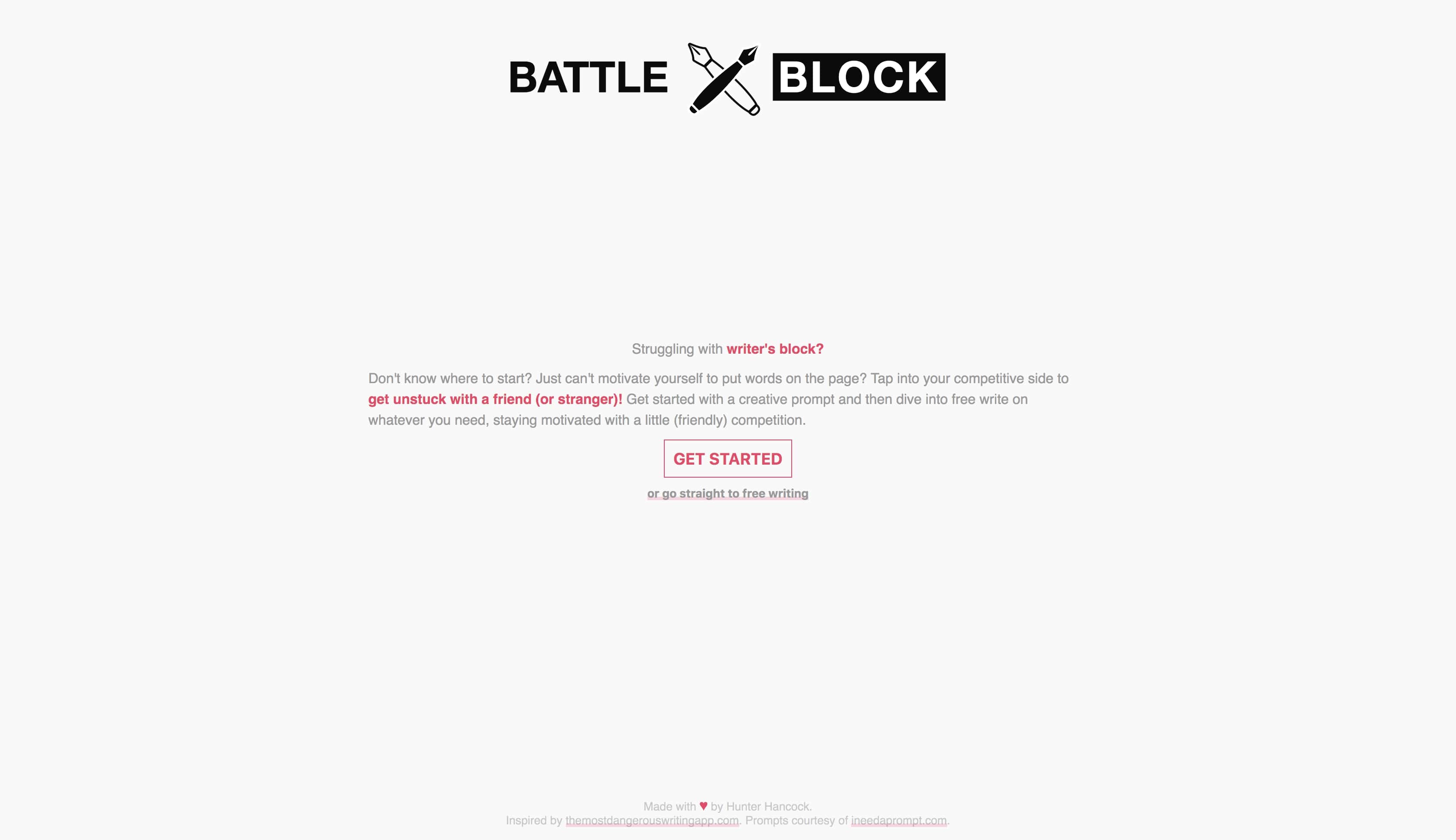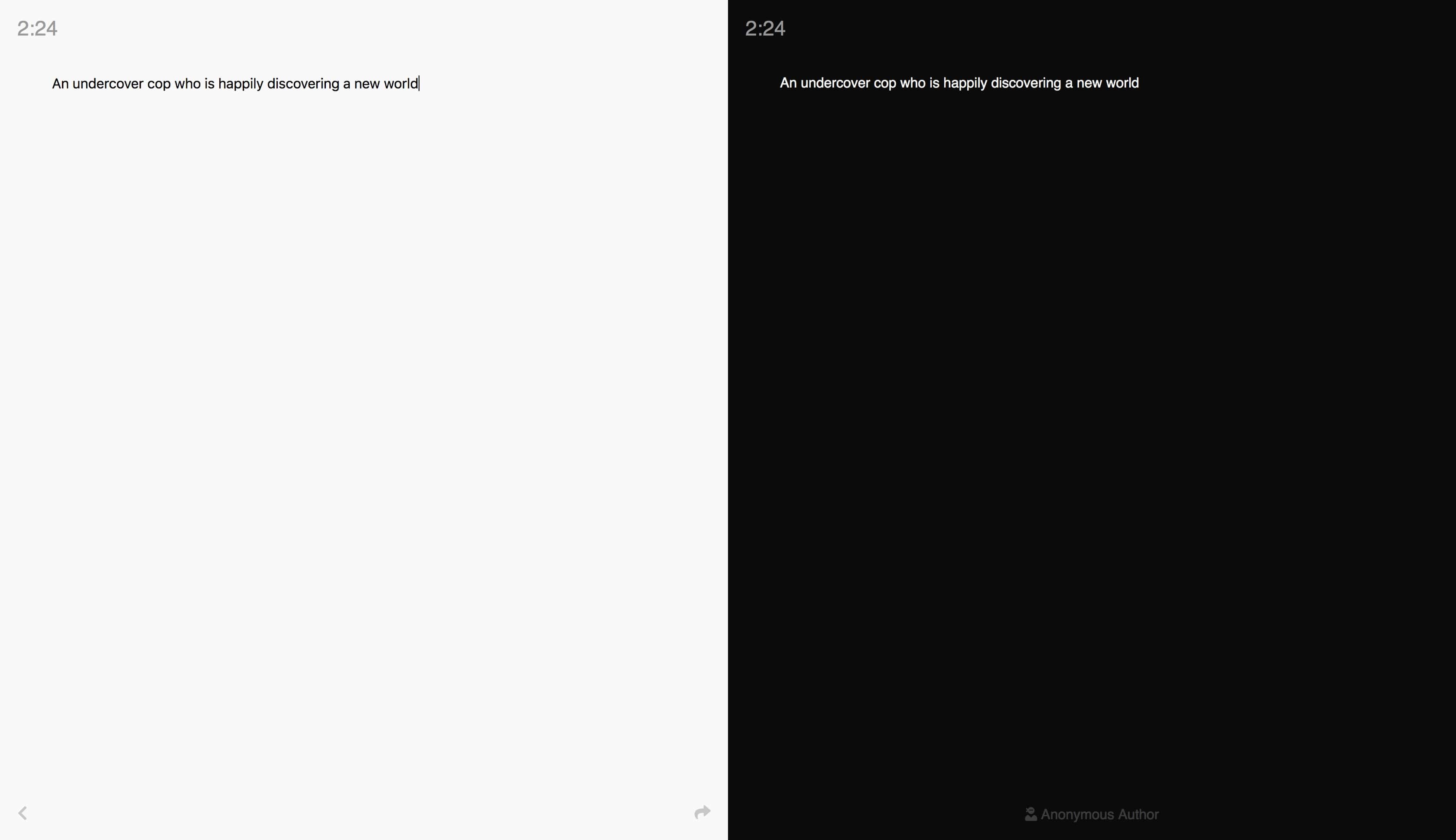BattleBlock
Battle writer's block with friends! Created for Georgia Tech ENGL 1101.

Pitch for a Wired story on BattleBlock (fictional).
Hi Alexis:
My name is Hunter Hancock, and I am a first-year undergraduate at Georgia Tech. I am nearing the end of a class on writer’s block, where over the past few months we have explored the condition’s perceptions, causes, and proposed cures.
I’m pitching a 750-word piece that I think would fit well in Wired’s “Design” section. It’s a short spotlight on a website that promises a novel approach to overcoming writer’s block. Writing has long been seen as a solitary activity; authors wall themselves off from the outside world, pulling up a blank document and waiting for their muse to strike. There exists a whole industry of products to prevent outside distractions, from apps that temporarily block social media access to others that reward or punish authors based on their productivity. However, none of these provide a solution when the root problem is internal motivation, as is too often the case.
Battle (writers) Block takes a collaborative approach to the problem, challenging the idea that writing is a necessarily lonely process. The website pairs strangers anonymously to be each other’s “writing buddies,” providing mutual inspiration and motivation as the authors warm up together with a creative prompt and then dive into free writing. The concept draws on proven productivity principles from other disciplines; programmers have long tackled creative roadblocks in teams through a process called “pair programming” and in the business world, people often identify “accountability buddies” to keep them on track with their goals.
I see this piece making a meaningful contribution to Wired’s existing conversation on tools for writer’s block. Having already covered many of the more solitary solutions described above, Wired could be among the first to take this discussion into the internet age. Though some previously-covered solutions take the form of websites, none leverage the web’s unprecedented ability to connect strangers struggling with writer’s block in real time, potentially reshaping the way society views the writing process.
